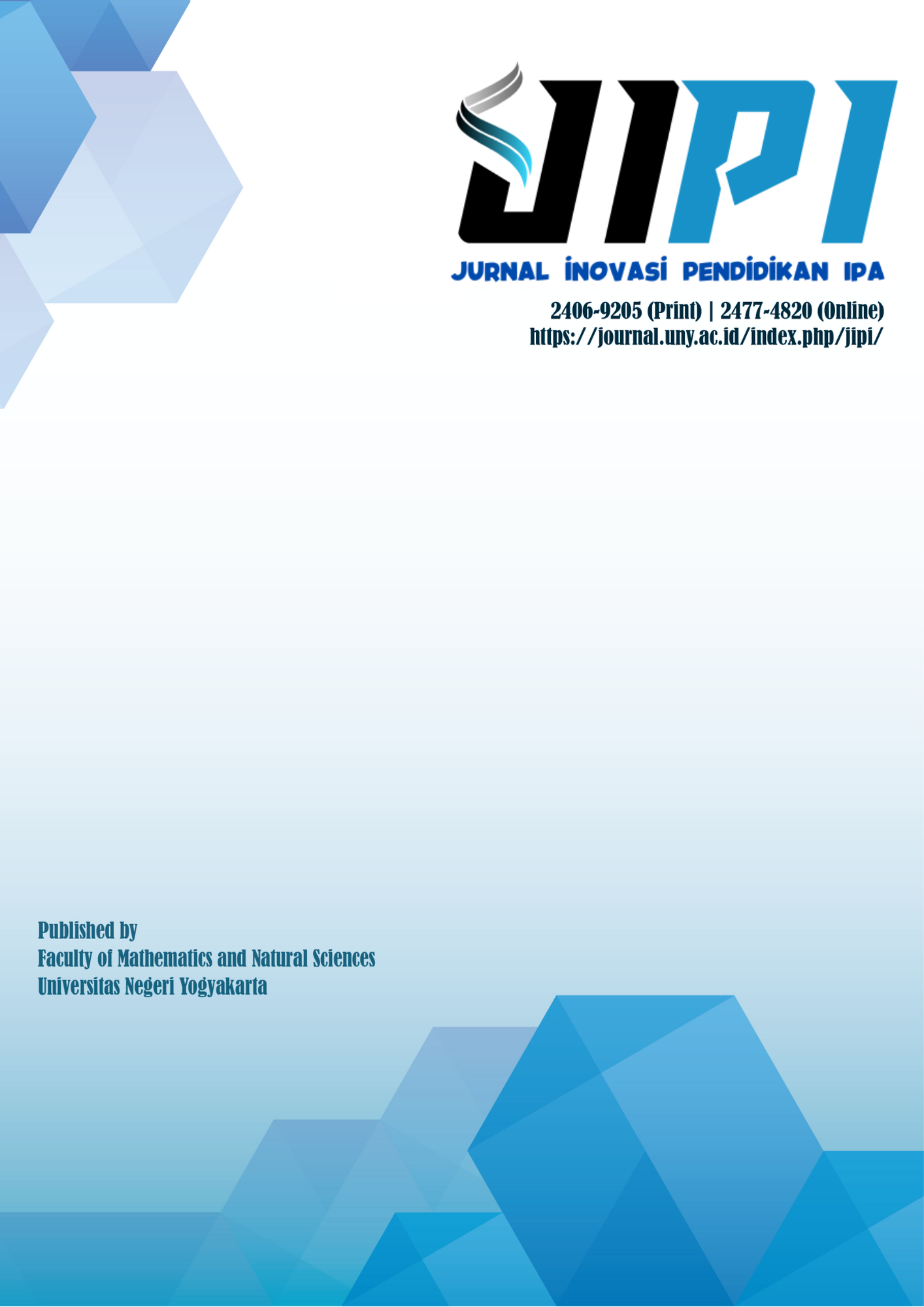
Focus and Scope
Focus
Jurnal Inovasi Pendidikan IPA (JIPI) aims to be a reputable platform for advancing scholarship in science education, with a particular emphasis on physics education, chemistry education, and biology education. The journal is dedicated to publishing innovative and high-quality research that contributes to the theory, practice, and policy of science education across diverse educational contexts. JIPI focuses on empirical research, theoretical analyses, and research & development studies that address curriculum, pedagogy, assessment, and technology integration in science education.
The journal particularly emphasizes research at the secondary school and higher education levels, as well as pre-service and in-service teacher education, with a special interest in studies that incorporate local wisdom and contextual challenges to improve global science education practices.
Scope
JIPI publishes significant contributions in the field of science education (IPA), covering the following areas:
-
Curriculum design and development in physics, chemistry, and biology education.
-
Teaching strategies, learning models, and innovative pedagogies for science education.
-
Instructional materials and resources, including digital learning, e-learning platforms, and virtual laboratories.
-
Assessment and evaluation methods in science education.
-
Integration of local wisdom and cultural contexts in science learning.
-
Educational technology applications for enhancing science teaching and learning.
-
Teacher professional development, both pre-service and in-service, in science-related fields.
-
Comparative and policy studies in science education at national or international levels.
-
Systematic literature reviews and meta-analyses offering new perspectives in science education.
-
Research and development (R&D) studies that produce innovative educational products, models, or practices.
Article Types
JIPI accepts various types of scholarly contributions, including:
-
Original empirical research with strong theoretical and practical implications.
-
Theoretical and conceptual articles advancing science education frameworks.
-
Systematic literature reviews and meta-analyses synthesizing current knowledge.
-
Comparative and critical policy analyses in science education.
-
Research and development studies presenting novel approaches, models, or tools.








